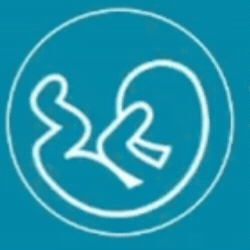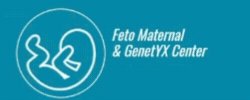Trisomy 21, commonly known as Down syndrome, is a genetic condition characterized by the presence of an extra copy of chromosome 21. This additional genetic material can lead to various intellectual and physical disabilities, including distinctive facial features, short stature, and developmental delays. Despite these challenges, individuals with Down syndrome can lead fulfilling lives with appropriate support and care. This blog aims to provide a comprehensive understanding of Trisomy 21, its causes, detection methods during pregnancy, and its impact on individuals and families in Dubai and the broader UAE.
What is Trisomy 21?
Trisomy 21 occurs when an individual has three copies of chromosome 21 instead of the typical two. This genetic anomaly can lead to various degrees of intellectual disability and physical characteristics, including:
- A characteristic facial appearance: Flat facial profile, upward-slanting eyes
- Short stature
- Developmental delays and learning difficulties
People with Down syndrome in UAE have a wide range of abilities and can achieve significant milestones with the right support. Down syndrome is the most common genetic cause of intellectual disability and affects individuals across all races and ethnicities.
Causes of Trisomy 21 in Dubai
Trisomy 21 is caused by the presence of an extra copy of chromosome 21 in some or all of an individual’s cells. There are three primary types of Trisomy 21:
- Non-Disjunction: This is the most common cause, occurring when chromosomes fail to separate properly during cell division. This type accounts for about 95% of all Down syndrome cases. Learn more about non-disjunction.
- Mosaicism: Mosaicism occurs when only some of the individual’s cells have an extra copy of chromosome 21. This can result in a milder form of Down syndrome with fewer symptoms. Mosaicism accounts for about 1-2% of cases. Explore mosaicism.
- Translocation: In this type, part of chromosome 21 attaches to another chromosome. It is usually inherited from one of the parents and accounts for about 3-4% of cases. Read about translocation.

Risk Factors for Down Syndrome in Dubai
While Trisomy 21 can affect any individual, the risk of having a baby with Down Syndrome increases with maternal age. Women aged 35 and older have a higher chance of giving birth to a child with Down Syndrome. However, it is important to note that the condition can occur in individuals of any race or ethnicity, and there is currently no way to prevent Trisomy 21.
Detection Methods for Down Syndrome During Pregnancy in Dubai
Several methods help detect Down Syndrome during pregnancy, enabling parents to make informed decisions:
1. Prenatal Screening Tests:
These include ultrasound scans and blood tests to assess the risk of Down Syndrome.
- Ultrasound Scans: Can detect physical signs that may indicate an increased risk of Down Syndrome, such as increased nuchal translucency.
- Blood Tests: The combined first-trimester screening or the quadruple screen measure specific substances in the mother’s blood to assess the risk of Down Syndrome. These tests are not diagnostic and cannot confirm the presence of the condition but can indicate an increased likelihood.
2. Diagnostic Tests:
CVS (Chorionic Villus Sampling) and amniocentesis provide definitive diagnoses but carry a small miscarriage risk.
- Chorionic Villus Sampling (CVS): Involves removing a small sample of the placenta to analyze fetal cells and determine the number of chromosomes present.
- Amniocentesis: Involves taking a sample of amniotic fluid to analyze fetal cells. Both CVS and amniocentesis are highly accurate diagnostic tests but carry a small risk of miscarriage.
3. Non-Invasive Prenatal Testing (NIPT):
A blood test from the mother that detects fetal DNA with high accuracy. NIPT is highly accurate and can be performed as early as 10 weeks into pregnancy. Although it is considered a screening test and not diagnostic, it can provide a high level of confidence in assessing the risk of Down Syndrome in Dubai. If NIPT results suggest the possibility of Down Syndrome, a diagnostic test such as CVS or amniocentesis may still be needed to confirm the diagnosis.
For more information on supporting children with developmental needs, see the Support Services for Children with Special Needs.
Impact of Down Syndrome on Individuals and Families in Dubai
Individuals with Down Syndrome typically face intellectual and physical challenges, including:
- Varying degrees of learning difficulties and developmental delays
- Distinct facial features, short stature, and hypotonia (low muscle tone)
- Health issues like congenital heart defects, respiratory problems, and thyroid disorders
Despite these challenges, many individuals with Down Syndrome in Dubai lead fulfilling and meaningful lives with the right support. They can attend school, work, and participate in social and recreational activities. Early intervention and ongoing support are crucial for maximizing their potential.
Support and Care for Down Syndrome in Dubai
Dubai offers various support services to help individuals with Down Syndrome lead fulfilling lives:
1. Early Intervention Services:
Programs to help children develop essential skills.
- These programs may include speech therapy, occupational therapy, and physical therapy to address developmental delays and improve communication, motor skills, and daily living activities.
2. Educational Programs:
Many schools in Dubai offer inclusive education programs that integrate children with Down Syndrome into regular classrooms with additional support.
- Many schools in Dubai offer inclusive education programs that integrate children with Down Syndrome into regular classrooms with additional support.
3. Medical Care:
Regular check-ups and specialized care for associated health issues.
- Specialized clinics and healthcare providers in Dubai offer medical care tailored to the needs of individuals with Down Syndrome, including monitoring for common health issues and providing treatments and interventions as needed.
4. Community Support:
Social inclusion and community support are vital for well-being.
- Community organizations and support groups in Dubai provide resources, advocacy, and opportunities for social interaction and support for individuals with Down Syndrome and their families.
Resources and Support for Families in Dubai
Families play a crucial role in supporting individuals with Down Syndrome. In the UAE, various organizations offer resources and assistance:
1. Down Syndrome Association UAE:
Provides support and advocacy for individuals with Down Syndrome and their families. More information can be found on their website.
2. Dubai Healthcare City:
Offers specialized medical care and support services.
3. Early Intervention Centers:
Down Syndrome, or Trisomy 21, is a genetic condition that affects many individuals in Dubai. Understanding its causes, detection methods, and impact is crucial for prospective parents and families. Dubai offers comprehensive support and resources to help individuals with Down Syndrome lead fulfilling lives. By raising awareness and promoting inclusive practices, we can ensure that individuals with Down Syndrome receive the support they need to thrive. For more information and assistance, numerous resources are available in the UAE.
At FMGC, we understand the emotional and physical toll of pregnancies. Our team of best obstetrics gynecologists are committed to providing compassionate care and comprehensive support to help you through this blessed time. If you or a loved one is expecting, please reach out to us for expert care and guidance.
Contact Us: Feto Maternal & GenetYX Center Dubai, UAE
Follow Us on Social Media: Facebook: FMGC Facebook
Instagram: FMGC Instagram
LinkedIn: FMGC LinkedIn
Twitter: FMGC Twitter

